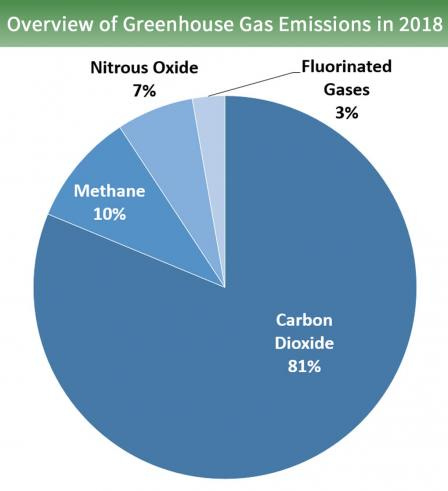Hello 👋, - Over the last year or so, I’ve started paying particularly close attention to climate change. The topic is so multidimensional, and I find it endlessly fascinating. If you’d like to know why, then get your Friday morning (almost weekend) cup of coffee ☕️ ready, and enjoy this week’s edition.
Let’s learn from Covid.
Of the many lessons from the Covid debacle, one that prickles at my anxiety levels is that humans are way less invincible than we thought we were. If nature or science turn against us, things can get scary, and there is little we can do about it.
But Covid didn’t just happen. Pandemics have been around since the dawn of humanity. In the last 20 years alone, there were scares with Swine Flu, Ebola, SARS and MERS. The experts too have been ringing the alarm bells. Bill Gates even did a freakishly accurate Ted talk titled, The next outbreak? We’re not ready way back in 2015. Despite all of this, we were woefully unprepared for Covid, and the last year has seen humanity run around like headless chickens in a panicked firefighting exercise.
This brings me to climate change and I’m sure that the problem needs no introduction. But if you need another reminder, here’s a short video from the World Economic Forum.
But even if you dispute the accuracy of climate models, I follow the precautionary approach. There is no dispute over the fact that we are 100% reliant on the earth for our existence. We also know that our atmosphere is a complex system and that it’s gradually being heated due to excessive greenhouse gases. Considering this, it’s not wise to play roulette with our planet (i.e. our existence) by pushing our climate too far into unchartered territories and possibly, beyond the point of no return. Who knows what could happen.
Covid has been horrible, but the impact of climate change could be exponentially worse. It’s no wonder Greta Thunberg is so upset.
It teaches you more about science.
If you are looking for something to learn, you can’t go wrong with science. Science is the study of truth and is the foundation of all human progress. And if you want to learn more about the climate problem (and its solutions), you’ll no doubt enhance your grasp of scientific concepts. To illustrate, here are two basic examples of how understanding climate change teaches you about science:
It teaches you about Greenhouse Gases (GHG)
Climate change is caused by different GHGs heating up the atmosphere.
Carbon dioxide (CO2) is caused by burning fossil fuels (coal, natural gas, and oil), waste, trees and other biological materials, and also as a result of certain chemical reactions (e.g. to make steel - see below).
Methane (CH4) emissions are largely due to livestock (i.e. cows burping) and landfills. Methane's lifetime (12 years) in the atmosphere is much shorter than carbon dioxide, but it traps about 25 times more heat than CO2.
Nitrous oxide (N2O) is largely produced by fertilizers, and as a GHG, it is 264 times more powerful than carbon dioxide. It lasts in the atmosphere for around 120 years.
It teaches you how things are made
Firstly, let’s see what activities produce the most emissions.
To understand why activities produce emissions, you have to understand how things work and how they are made. This will teach you about electricity, transportation, building and agriculture, to name only a few. In doing so, you learn the science behind wide-ranging topics like fertilizers, the digestive systems of cows, cement, nuclear power and batteries*.
Did you know, for example, that**:
Steel, a critical building material, is made by burning iron and coke (a type of coal) at high temperatures, thus separating oxygen from the iron and carbon from the coke. In doing so, some of the carbon bonds with the iron to form steel, but also the oxygen to form CO2. 1 ton of steel produces about 1.8 tons of CO2.
The best solar panels convert only a quarter of the sunlight that hits them into electricity.
Fertlizer, critical for modern agriculture, contains nitrogen. When fertilizer is applied to soil, the nitrogen that doesn’t get absorbed by the plant gets released into the air, forming nitrous oxide (264 times more powerful than carbon dioxide).
*If you want to learn more about batteries, I enjoyed this Bloomberg Quicktake.
**Source: How to Avoid a Climate Disaster: The Solutions We Have and the Breakthroughs We Need, Bill Gates
Climate change could reshape geopolitics.
More than 100 countries have made pledges to become carbon neutral by 2050, with some having made more progress than others.
For the world’s leading CO2 emitters such as China, the US and the EU, these are significant commitments and upholding them will require a miraculous amount of innovation.
Clean energy is the new oil
Since their mainstream adoption, fossil fuels have had a major impact on geopolitics. They have generated immense wealth, sparked wars and forged alliances. Similarly, the race to produce clean energy and related innovations may create new winners and losers. How will this play out for regions like the Middle East that rely on oil and gas exports?
According to the Financial Times, China has already positioned itself well in the race for green supremacy:
“China produces more than 70 per cent of all solar photovoltaic panels, half of the world’s electric vehicles and a third of its wind power. It is also the biggest battery producer and controls many of the raw materials crucial for clean-tech supply chains, such as cobalt, rare earth minerals and polysilicon, a key ingredient in solar panels.”
People and organisations are going to make bajillions 💸💸💸💸
From a business point of view, the scene is set for a gold (green) rush. There is a major societal need for innovation across almost every sector of the economy coupled with unprecedented government support across the globe. What more can you ask for?
The automotive industry has been one of the first industries to be severely disrupted. We all know that Tesla’s share price skyrocketed in 2020, making Elon Musk joust with Jeff Bezos for the title of the richest man on the planet. But other carmakers are also starting to ride the wave. Volkswagen’s shares have risen more than 30% following its recent announcements in mid-March about its electric vehicle (EV) ambitions, including heavy investment in battery factories. The outlook for EVs looks promising.
The green rush has been huge in China. Bloomberg recently released their list of The Top Climate Billionaires, and apart from Musk in the top spot, the list is almost exclusively comprised of Chinese billionaires. They are from companies like CATL (EV batteries), Longi (solar panels) and BYD (electric vehicles, buses and trucks and backed by Warren Buffet’s Berkshire Hathaway) and Nio (the Chinese version of Tesla backed by Tencent).
But it’s not only cars that have benefited. From energy (e.g. NextEra) to food (e.g. Beyond Meat), the opportunities are plentiful. See for example how, despite a recent slump, the S&P Global Clean Energy Index has outperformed the S&P 500 in the last year.
Parting thought
I’m excited to see all the changes the future holds if all this innovation and planning comes to fruition. Imagine cities intertwined with nature with only electric cars silently gliding by. How will politics evolve? What new technologies will emerge to change our lives?
Although learning about climate change triggers fear, it’s overshadowed by the thrilling prospect of a new frontier on the horizon.
If you enjoyed this post, then please subscribe or share it with someone who may also enjoy it. Thanks for tuning in. Have a great weekend!











